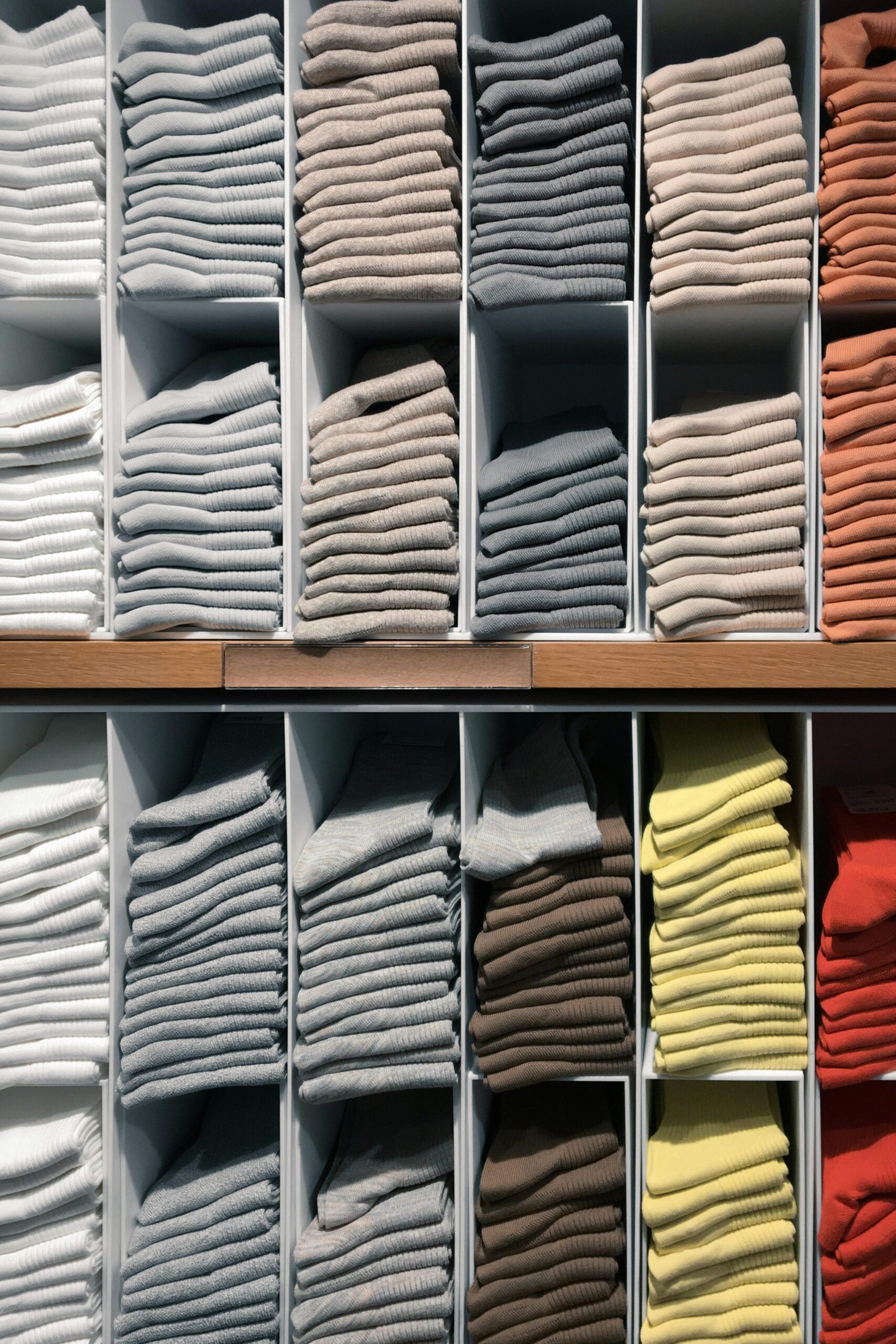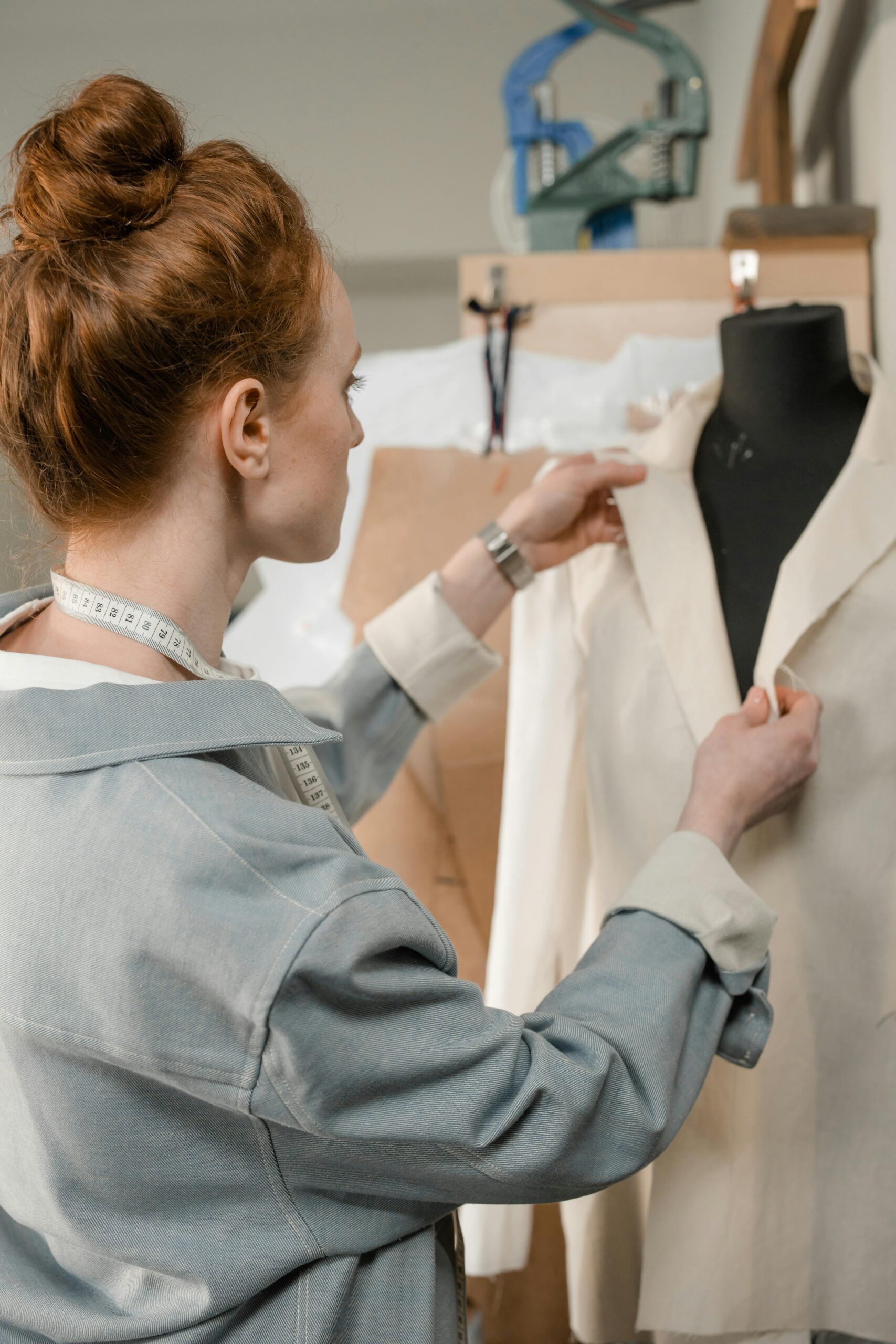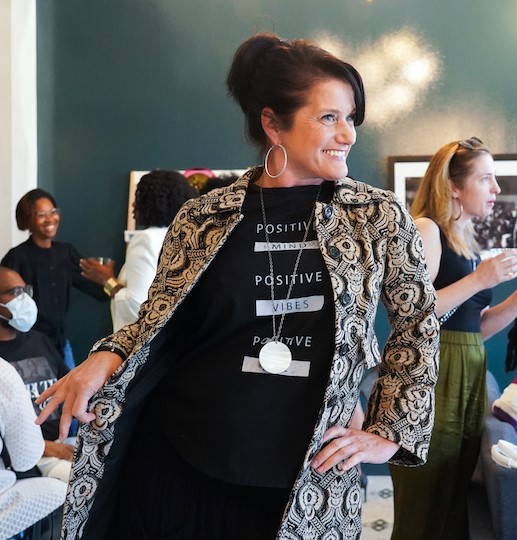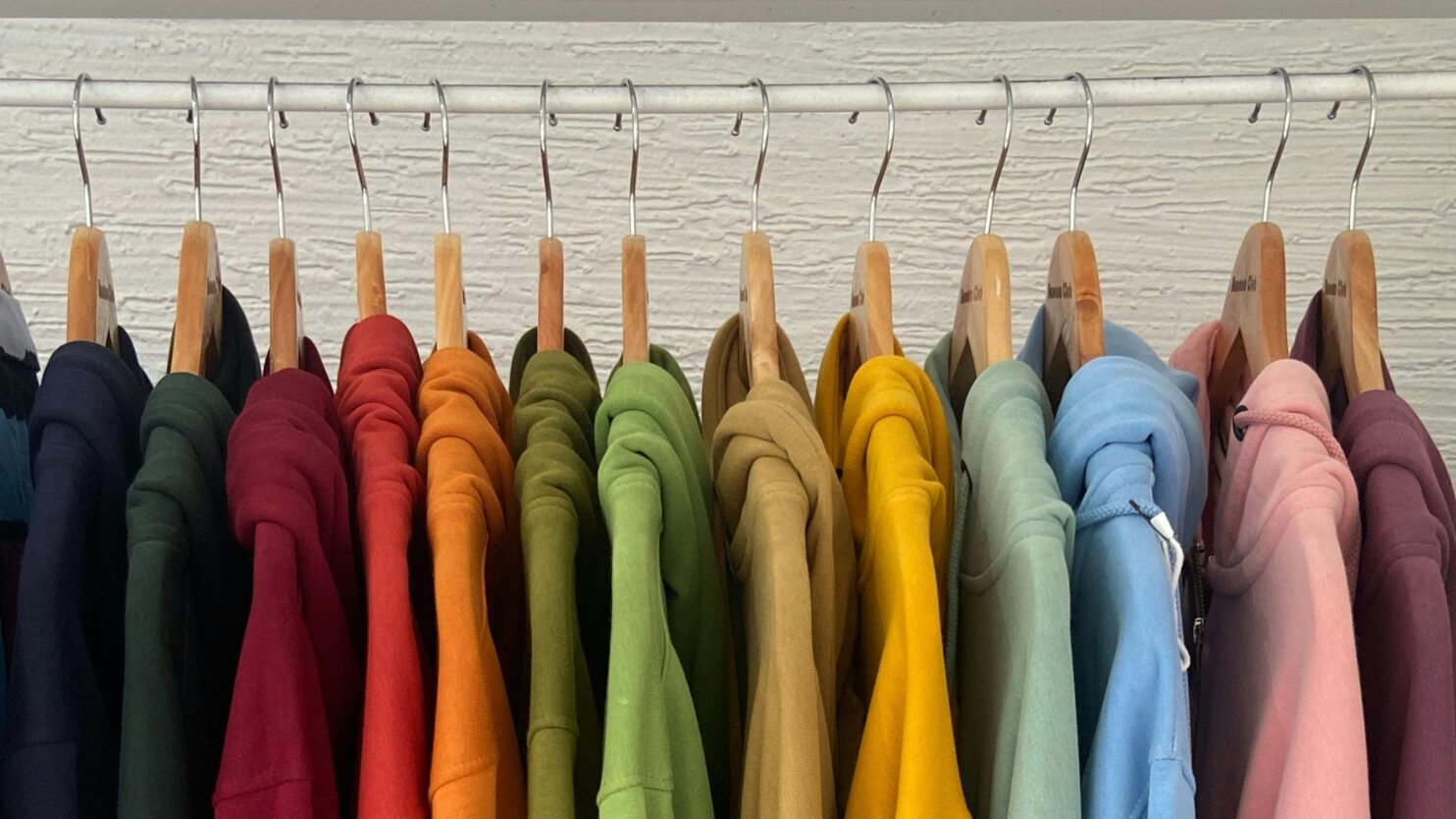Listen to the blog:
Understanding the differences between off-the-shelf promotional apparel, like that from the Advertising Specialty Institute (ASI), and custom apparel programs can be challenging, especially if you are not an expert in the field. The decision-making process can feel daunting. Let us explore the key distinctions, the pros and cons of each option, and take an overall look at branded apparel.
What is the Difference?
Off-the-Shelf Promotional Products:
These are ready-to-go products that are pulled off the shelf and are customizable with your logo, slogan, or messaging.
Custom Products:
Custom products are tailor made and specifically designed for your brand. They are created from an idea through design, production, and delivery of the final product. Everything is executed – from design to fabric to fit – with your unique specifications.
Now that we know the difference, let us explore the upsides and downsides of each…
The Upside to Off-the-Shelf Promotional Products:
- Time: The most obvious upside to off-the-shelf products is time. Since these products are already made, they can be branded and delivered quickly.
- Smaller Quantities: Many off-the-shelf options allow for smaller order quantities which can be beneficial especially for a limited run or event campaign.
The Downside to Off-the-Shelf Promotional Products:
- Entry Point Fabrications: Many off-the-shelf products use lower-quality materials that can feel less soft to the touch or can have other issues like inconsistent sizing or shrinkage. Depending on what your goals are this may not align with your brand standards.
- Co-Branding: Many off-the-shelf products carry the manufacturer’s brand name. This can be positive or negative, but the Important thing is that your branding aligns with the co-branding company. If you care about certain sustainability standards and the product does not match the level of your brand, this could lead to marketing or public relations challenges.
- Not one-of-a-kind: The products you are putting your logo on are going to be the same products someone else, even a competitor, is putting their logo on. The same products are available across the market.
- Product Consistency: Off-the-shelf products may vary in quality and appearance making it difficult to maintain a consistent brand image.
- Fit: Inconsistency, not developed for your customer.
- Shrinkage: With entry point materials, non-compacted.
There are definite advantages and disadvantages of off-the-shelf products. What about the pros and cons of custom products?
 The Downside of Going Custom:
The Downside of Going Custom:
Requires More Planning: Custom designs demand detailed planning and longer lead times, as every element is created to meet your specific needs. This is about planning and being prepared for the additional time. The process can also be longer or shorter depending on making timely decisions throughout the process.
The Upside of Custom Products:
Elevated Product – Building Brand Equity: Custom products are exactly that…custom. Products are tailored specifically to your brand, enhancing your image and building brand equity through high-quality merchandise. These are products your customers, staff, and clients will want to wear all the time.
- Consistency: With custom designs you control every aspect of design and production ensuring consistent quality and brand alignment with every product.
- Spec (Sizing): Custom products allow for precise sizing ensuring a better fit and more tailored appearance. If you need to provide sizing such as youth, petite or tall, you can easily add special or additional sizing to custom products.
- Elevated and Unique Fabrications/Finishes: The fabric options are endless which allows you to select fabrics and finishes that reflect your brand and aesthetic, offering a better experience and increased wearability for your customers
- Products Customers Will Want to Wear: When you create something unique and high-quality, your customers are more likely to wear your products, turning them into walking advertisements for your brand.
So, which do you choose? Off-the-Shelf or Custom Apparel?
Making the choice between off-the-shelf and custom apparel comes down to what your company branding goals are. While off-the-shelf products offer convenience and speed, custom products provide an opportunity to elevate your brand through superior quality and design. By understanding the trade-offs, you will make the right decision for you.
Whether you opt for off-the-shelf or custom apparel, you do not need prior experience in the apparel industry. There are partners ready to guide you through the entire process. At Stars Design Group, we specialize in custom apparel and are here to help you every step of the way.
 Audra Harrold is a dynamic leader in the fashion industry, currently serving as the Vice President of Partnership Development and Education at Stars Design Group. With a diverse background that spans various facets of fashion, Audra has cultivated a rich expertise through her experiences as an entrepreneur and industry advocate. She founded her own equestrian sports brand, which allowed her to explore the intricacies of brand development and small-batch manufacturing.
Audra Harrold is a dynamic leader in the fashion industry, currently serving as the Vice President of Partnership Development and Education at Stars Design Group. With a diverse background that spans various facets of fashion, Audra has cultivated a rich expertise through her experiences as an entrepreneur and industry advocate. She founded her own equestrian sports brand, which allowed her to explore the intricacies of brand development and small-batch manufacturing.
